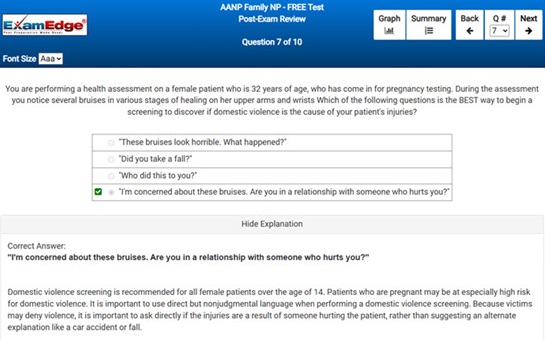CEOE Psychology/Sociology (032) Practice Tests & Test Prep by Exam Edge - Topics
Get Instant Online Access Now!
** Sample images, content may not apply to your exam **
Understanding what is on the CEOE Psychology/Sociology exam is crucial step in preparing for the exam. You will need to have an understanding of the testing domain (topics covered) to be sure you are studing the correct information.
- Directs your study efforts toward the most relevant areas.
- Ensures efficient and adequate preparation.
- Helps identify strengths and weaknesses.
- Allows for a focused approach to address gaps in understanding.
- Aligns your preparation with the exam's expectations.
- Increases the likelihood of success.
- Keeps you informed about your field's current demands and standards.
Select Your Test Bundle
Excellent
CEOE Psychology/Sociology (132) Shortcuts
General Exam Info
Exam Topics
Features
Study Plan Tips
Test Reviews
Why Exam Edge?
FAQ
Take a FREE Test
Understanding the exact breakdown of the CEOE Psychology/Sociology test will help you know what to expect and how to most effectively prepare. The CEOE Psychology/Sociology has 80 multiple-choice questions and 1 essay questions. The exam will be broken down into the sections below:
| CEOE Psychology/Sociology Exam Blueprint | ||
|---|---|---|
| Domain Name | % | Number of Questions |
| Core Perspectives, Methods, and Concepts of Psychology | 18% | 14 |
| Development, Learning, and Cognition | 18% | 14 |
| Motivation, Emotion, Personality, Mental Health, and Social Behavior | 18% | 14 |
| Core Methods and Concepts of Sociology | 18% | 14 |
| Social Institutions, Stratification, and Problems | 13% | 10 |
| Pedagogical Content Knowledge | 15% | 12 |
CEOE Psychology/Sociology - Exam Topics Sample Questions
|
|
|
|






